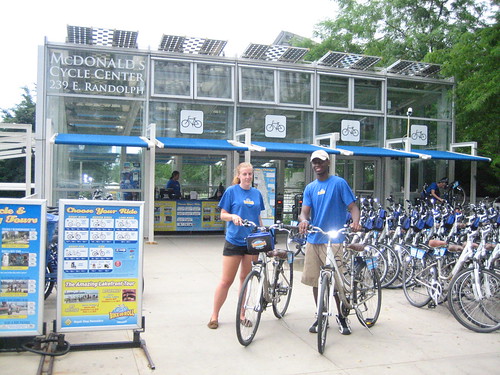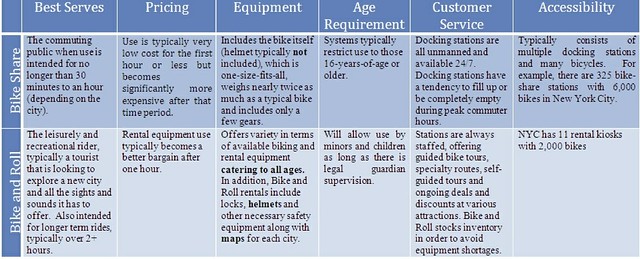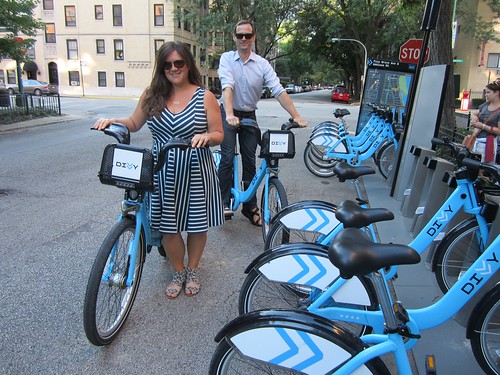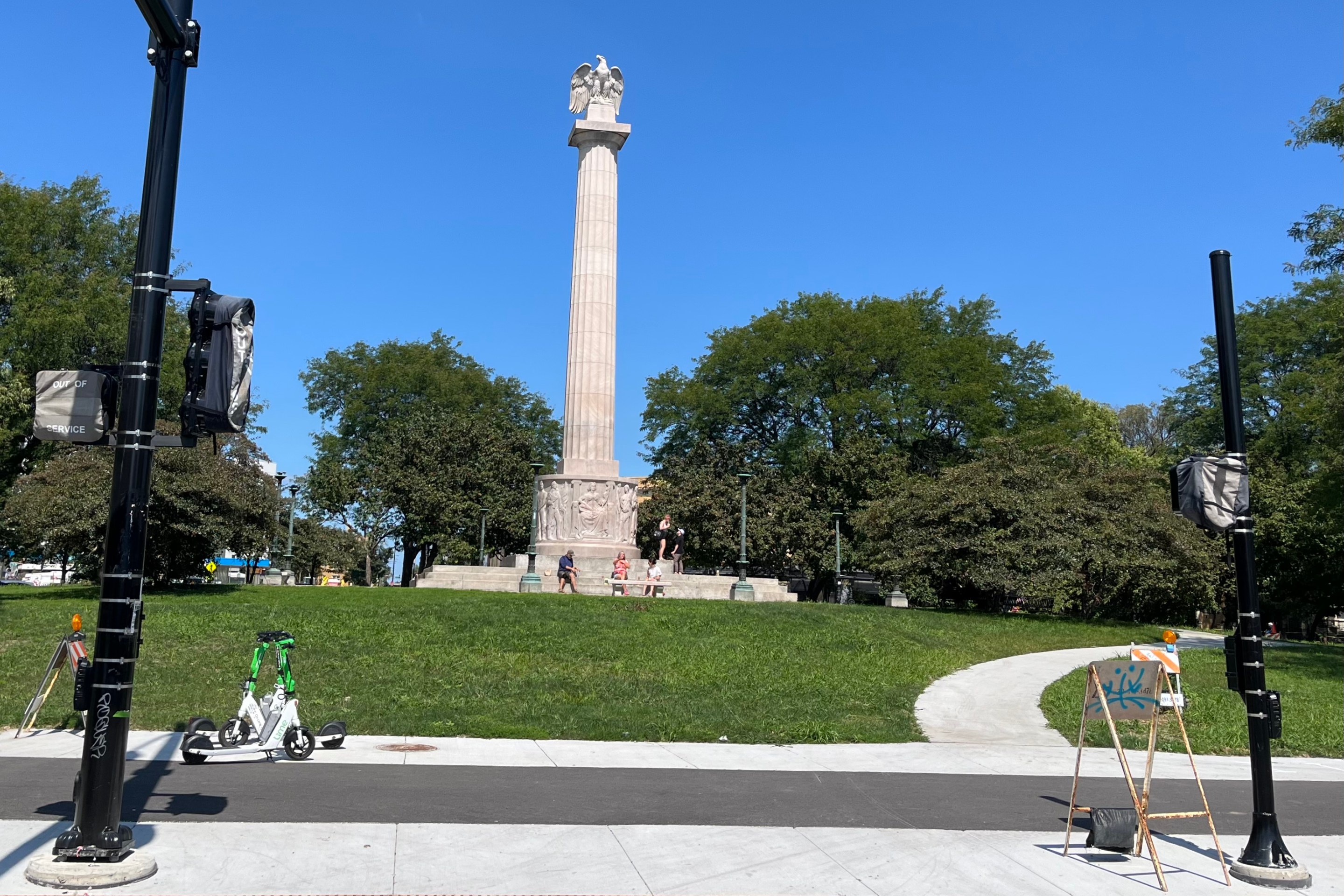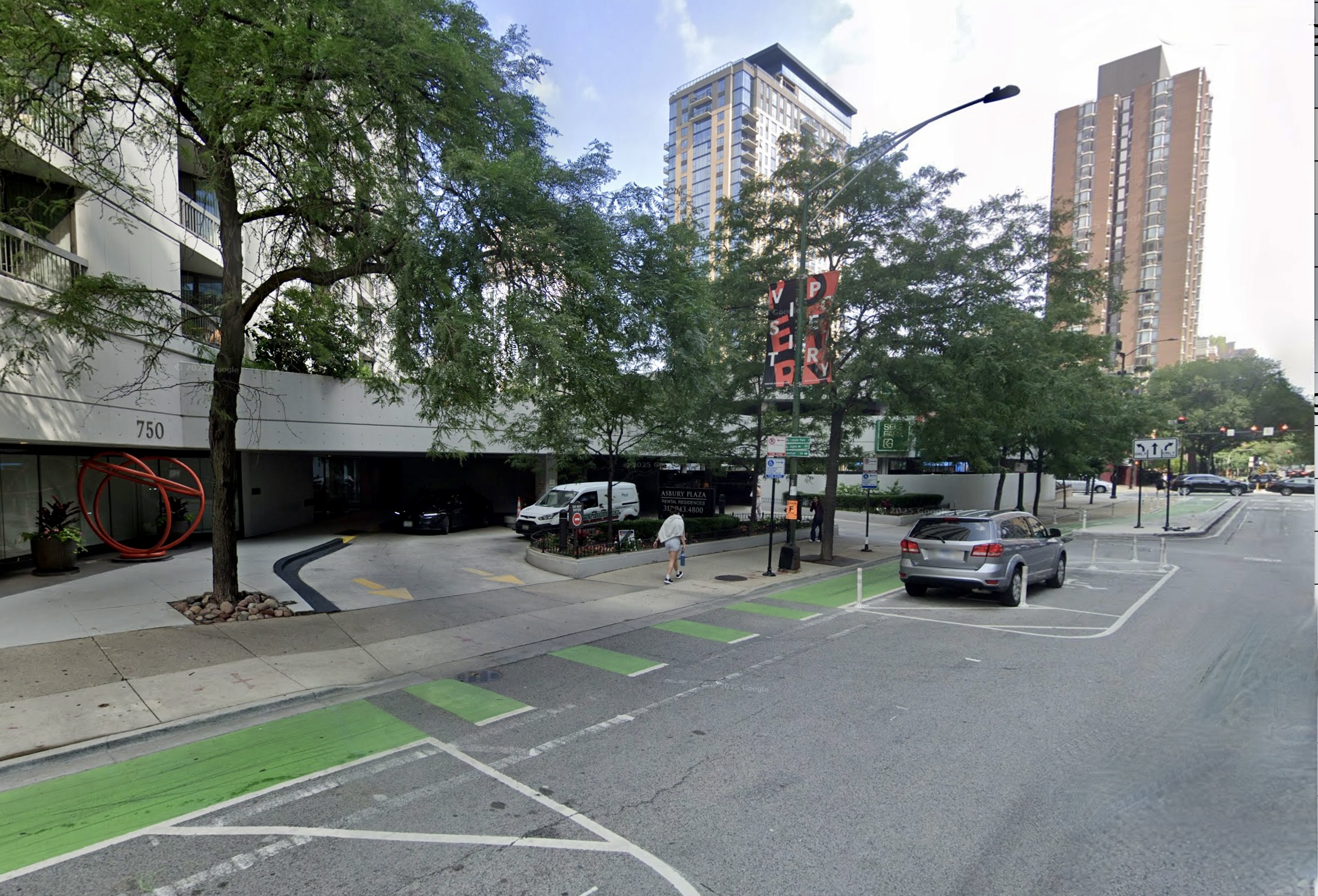Bike and Roll Chicago (a Streetsblog sponsor) recently put out a press release acknowledging that conventional bike rental and bike-share complement each other. It's a smart shift in approach for company co-owner Josh Squire, who had previously protested the bid process for Chicago’s bike-share contract. Squire claimed it was unfair because Transportation Commissioner Gabe Klein had done consulting work for Alta Bicycle Share, the contract awardee, although Klein recused himself from the process. In May, however, he gave up his beef, stating, "No matter who ends up operating the program, it’s great for Chicago."
That was a wise perspective since, in the long run, Divvy is going to help Squire’s rental and tour business. By adding thousands of new cyclists to the city streets, bike-share has made drivers more aware of bikes, boosting safety for his customers. It has also raised Chicago’s profile as a bike-friendly city, which means more visitors will be interested in signing up for his guided tours.
The press release attempts to lay out the distinctions between bike rental and bike-share. "Our goal is to familiarize the cycling public on the difference so potential customers understand how each system works and can therefore decide which product meets their needs," co-owner Darryll White said in a statement. The release includes the following chart, which is posted at Bike and Roll rental kiosks.
While the chart's main purpose seems to be to encourage more visitors to rent bikes instead of using bike-share, it does bring up some valid points about the differences between the two. Moreover, the statement in the press release, "The two systems are intended to complement each other based on a user’s intentions," confirms that Bike and Roll understands Divvy is not an enemy.
Let’s look at some of the claims in the chart. It states that bike-share best serves commuters taking trips of 30 minutes or less, while rental is more appropriate for tourists taking longer, more leisurely rides. It also says that rental equipment typically is a better bargain for trips of one hour or more.
While the former assertion is generally true, a comparison of Divvy rates and those for Bike and Roll’s comparable three-speed cruiser shows that, overtime charges included, rates for bike-share daily pass users are actually cheaper for rides up to 90 minutes. However, a 91-minute Divvy ride costs $21, while a two-hour Bike and Roll rental is $20, and a four-hour bike-share trip costs $53, versus only $30 for rental. Paying an extra $5 allows you to keep the Bike and Roll cruiser all day. Meanwhile, each additional Divvy hour is $16. On the other hand, it’s possible to use a Divvy bike all day for only the cost of the $7 pass, as long as you check it in every 30 minutes to avoid late fees -- a practice known as "dock surfing."
The chart notes that Bike and Roll rentals include a helmet and maps while bike-share systems usually don’t provide these, and bike-share is generally restricted to users 16 and older, while kids under 16 can rent bikes with adult supervision -- both valid points. It also mentions that bike-share bikes are usually heavy, one-size-fits-all three-speeds, while Bike and Roll offers a variety of rides, although their multi-geared bikes are more expensive to rent.
While Bike-share stations are open 24-7, they’re unmanned, the chart points out. Bike and Roll kiosks are staffed with employees who can offer safety and route tips, as well as guided bike tours -- an important distinction. However, the assertion that “Docking stations have a tendency to fill up or be completely empty during peak commuter hours" is a little misleading. At least in Chicago, re-balancing problems seem to be the exception, not the rule, so tourists shouldn’t be scared away from using Divvy for fear that they’ll get marooned.
Other traditional bike rental businesses to be viewing bike-share as a positive development rather than a threat. In one indication of that trend, several local bike shops have teamed up with Divvy to offer 20-percent discounts on helmets and ten-percent discounts on accessories to bike-share members. Here’s a list of participating shops:
- Comrade Cycles
- J.C. Lind Bike Co.
- Kozy’s Cyclery
- On the Route Bicycles
- Performance Bike
- Smart Bike Parts
- The Bike Lane
- Village Cycle Center
